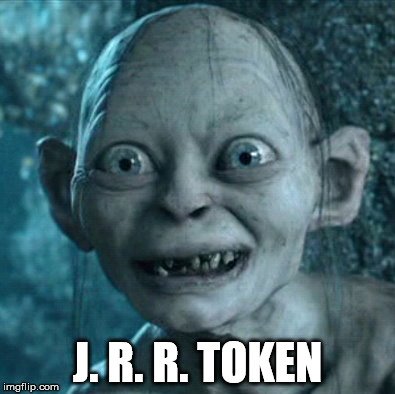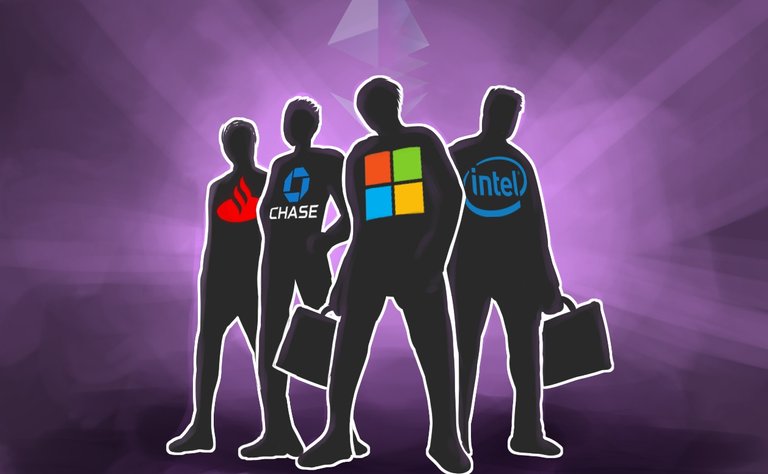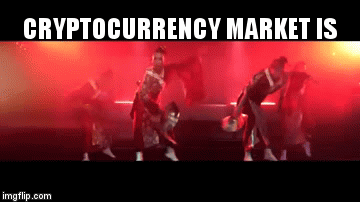Hey guys and gals! Since so many of us here on SteemIt are still learning about the cryptospace and what it can do to change our lives, I decided to post up a quick comparison between the top up-and-coming tokenization platforms. While I am not yet an "expert" imho, I am an avid researcher in cryptospace developments and am inspired by such commentators as @crypt0 , @kingofdew , and @kingscrown (and many others) to share my insights with you, the SteemIt community!
So lets get right into it...

What is TOKENIZATION? (as it pertains to cryptocurrency)
It is the act of ascribing a value by creating a unique and validated "representative token" of an asset. Defined in the dictionary as: token, verb (used with object) - to be a token of; signify; symbolize.
"Tokens" can be used within a closed system to represent just about ANYTHING! It is my opinion that this process will revolutionize our economic reality more so than any other aspect of crypto. This is further evidenced by all the ICO offerings of late, that are actually nothing more than "token" chains, most often linked to Ethereum through ERC20 protocol...
So without further ado, lets see what exists out there for us to investigate and invest in...
- Ethereum

Even as the #2 highest market capitalization cryptocurrency (ETH), the Ethereum blockchain is still a bit mysterious to most amateur investors and enthusiasts. This is because unlike BitCoin, they have incorporated a scalable tokenization platform, which has already been set upon by mega-corporations as seen in the recent Enterprise Ethereum Alliance conference.

The greatest drawback in the Ethereum platform is the necessity to be able to program in Solidity, a difficult and uncommon language in the programming world. That is why these wealthy companies are now in a bidding war over the few able programmers that can quickly develop their envisioned private projects. For private enterprise, their interests are more geared towards developing their own private blockchains, that merely "interact" with the main blockchain rather than decentralized projects that will "live" on the public chain.
While there is a lot of hype over Ethereum now, there are some serious competitors that have the potential to become the new standard as people gravitate to the blockchain universe.
- NEM

NEM currently occupies the #4 slot for worldwide cryptcurrency market capitalization. Its position, despite having almost NO western exposure (it is being accepted almost entirely in Japan and Asia), should tell you something about the magnitude of possibilities if this gets traction in the West.
NEM's blockchain is entirely unique (not based in part or whole on any other project) and is written in Java, a much more common programming language than Solidity, for example. The prospect of building dynamic applications that can interact with the public blockchain opens a world of possibilities for adoption.
Their tokenization process is something they call Mosaics and Namespaces. If you have XEM (the currency that operates on the blockchain of NEM) and want to make a mosaic, you can read about it here.
This internally supported tokenization process requires a fairly hefty bit of XEM to develop into, and may become hampered by a rising price of XEM. The aspects of what the Javascript applications that have yet to be developed will accomplish however, will be very interesting to observe in the near future as NEM gains acknowledgement in the West.
NEM currently offers a locally stored lite client wallet, that allows for "vested delegated harvesting", which is similar to "staking" in that it offers a mechanism whereby users can generate passive income.
- Stratis

Stratis is currently #7 in worldwide crypto market capitalization. This is after a week of upward growth that saw the blockchain's currency, STRAT, double in its value. Stratis, interestingly enough, is modeled after the original Bitcoin blockchain. However, it is built on the C# programming language and .Net framework, rather than Bitcoin's antiquated C++. This has resulted in faster transaction and data compilation times as well as a more streamlined wallet interface, with staking function built-in.
The real breakthrough feature here is that this is the first platform to be built on a widely known and adopted programming language, C#. This has led to an official partnership between the Stratis platform developers and Microsoft Azure. Could this portend a mainstream integration of Stratis into the next-generation of operating system software?
Stratis, similarly to Ethereum, is likely to be utilized by private businesses vis-à-vis building separate blockchain projects that can then be configured to interact through the public blockchain. Having a well known programming language will help in this endeavor, tremendously.
- Waves

Sitting at #10 in market capitalization as of the writing of this article, the Waves platform is a drastic departure from the previously mentioned blockchains. Waves' focus is singularly set upon its "Asset creation" feature, which effectively allows anyone to create their very own crypto-coin instantly... Wait, a second...

Well, something like that, anyway. You can use your WAVES to create an entirely new asset by subdividing the invested value into your own creation. This could revolutionize crowdfunding as we know it, with regular, everyday people now effectively launching their own "ICO"s or "cryptocoins" underwritten by the Waves platform.
This platform is still developing and is looking for a few good people to join their team. I, for one, will definitely be supporting this innovative platform into the future and encourage you to do the same.
- Ardor

The final platform I would like to discuss in this post today, is Ardor. Its current market capitalization rank is #30 and its supported digital currency NXT sits at #42, as a separate entity.
Ardor endeavors to establish a platform upon which users can build what they call "child chains". In other words, your "private blockchain project" isn't actually going to be private.

Well this can actually be a GOOD thing. It means anyone building a "child chain" off of Ardor and NXT will be building something more like a "customized node" (rather than a completely separate entity), allowing for transparency and communication across the entire public blockchain.
Watch this platform over the next 6 months, if there is confirmation that large companies are investing in this approach, both ARDR and NXT will blast off to the moon.
That's all for this installment folks! Thanks to everyone who takes the time to read, upvote, resteem, or follow!!!
If you appreciate the insights I share and are able to help, please support the SURVIVOFIT cause! Your donations go towards development of a modern urban survival ecommerce hub for equipment, tools, and tech to survive in the concrete jungle and beyond!
Please donate in any of the cryptocurrencies listed below! Thank you!

BTC : 16vNkxCyyifzBcqUp8Be8aX9AQ22F1AWVm
ETH : 0x37ed0b619e645d7be4cf1ee155d3ad83e7f1057d
LTC : LSFUjEn7i2nu5EasWc2k5TFHeGao2vdVc4
GNT : 0x37ed0b619e645d7be4cf1ee155d3ad83e7f1057d
XEM : NBT7IG-CRKUKH-SBIZ2X-SPHVYQ-PNT736-RM5TSP-IJET
STRAT : SkWu6ghR3nMAPRZmLciiSAzsoRVbGdPQti
WAVES : 3PPz568ymFAQfqBYWWcJFdAsWngJ4QjCtgd